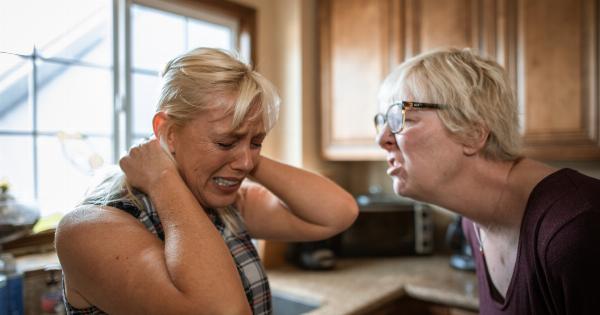Non-consensual sex, also known as sexual assault, is a criminal offense that involves sexual contact without a person’s consent.
While it is often believed that only women are victims of sexual assault, men can also suffer from this traumatising experience. Men who have survived non-consensual sex face unique challenges in coping with the trauma they have undergone. This article explores the various aspects of the trauma and how men can seek help to deal with it.
The experience of non-consensual sex for men
For men, the experience of non-consensual sex can be just as traumatic as it is for women. The act itself may be carried out by a stranger or someone known to the victim.
The emotional impact of sexual assault on a man can often be intensified by societal stereotypes surrounding masculinity and male sexuality. These stereotypes can make it difficult for men to come forward and seek help or report the abuse they have endured.
Immediate and long-term impact of non-consensual sex
Immediate effects of non-consensual sex can be as severe as physical injuries and, in some instances, sexually transmitted diseases. However, the long-term effects of the trauma can be even more severe and life-altering.
Men who have suffered sexual assault or rape are at a higher risk of developing mental health issues such as depression, anxiety, post-traumatic stress disorder (PTSD), suicidal thoughts, and substance abuse. They may also feel isolated, detached from others, and have difficulty trusting in any relationship or sexual interaction.
Challenging social stereotypes surrounding men and sex
As mentioned earlier, stereotypical notions surrounding masculinity and male sexuality can make it difficult for men to come forward and seek help.
The perception that men are supposed to be strong and self-sufficient and that they should not show emotions make it harder for men to communicate their feelings or seek emotional support. Such social conditioning not only undermines men’s emotional wellbeing but also downplays the severity of sexual assault.
Supporting men holistically, challenging social stereotypes that prevent them from coming forward, and reassuring them that they will not be judged or blamed for the abuse they have suffered is imperative.
Helping men cope with the trauma of non-consensual sex
If you are a man who has been subjected to sexual assault, it is essential to remember that it is not your fault. You do not have to cope with the trauma alone.
Professional help is available from individuals and organisations that provide trauma-informed care support and counselling. These include rape crisis centres, trauma therapy centres, and mental health support services. Agencies and counselors who work with sexual assault survivors understand the unique aspects of male sexual assault.
Therefore, you can be comfortable with coming forward knowing that their staff will respond to your needs accordingly.
Men’s support groups
In addition to professional help, support groups of male survivors of sexual assault can also be incredibly beneficial.
Joining a support group for sexual violence such as Survivors UK can help individuals deal with the complex emotional issues that arise from their experiences. Men in these groups have similar experiences and can offer guidance and support based on their understanding. Additionally, they can provide a safe place to share concerns and find support without feeling judged, blamed, or misunderstood.
Releasing the Trauma
Overcoming the aftermath of sexual assault can be a long process. It is about giving yourself time to work through the trauma and establish new coping mechanisms.
One way that works for many people is to “release the trauma” through the practice of meditation, yoga, or any other relaxation technique that they find useful. It can be helpful to incorporate physical exercise into your routine, as it promotes positive feelings and boosts your self-confidence.
The need for greater awareness about men rape
Although sexual assault against men is equally serious as it is against women, it remains less known and recognized.
It is crucial to recognise that one’s sex or gender is not a determinant of their susceptibility to sexual assault, and society should focus on enduring comprehensive information and support for men who have experienced non-consensual sex.
Conclusion
Men who have suffered non-consensual sex might find it hard to process the experience, but with the right support, they can overcome the trauma. Men need to understand that sexual assault is not their fault, and seeking help is not a sign of weakness.
There is no shame in seeking emotional and mental health support or joining support groups to regain control of one’s life, and concepts surrounding gender should never hinder men from seeking support. With the right resources and support, men can overcome the trauma and feel whole again.


























